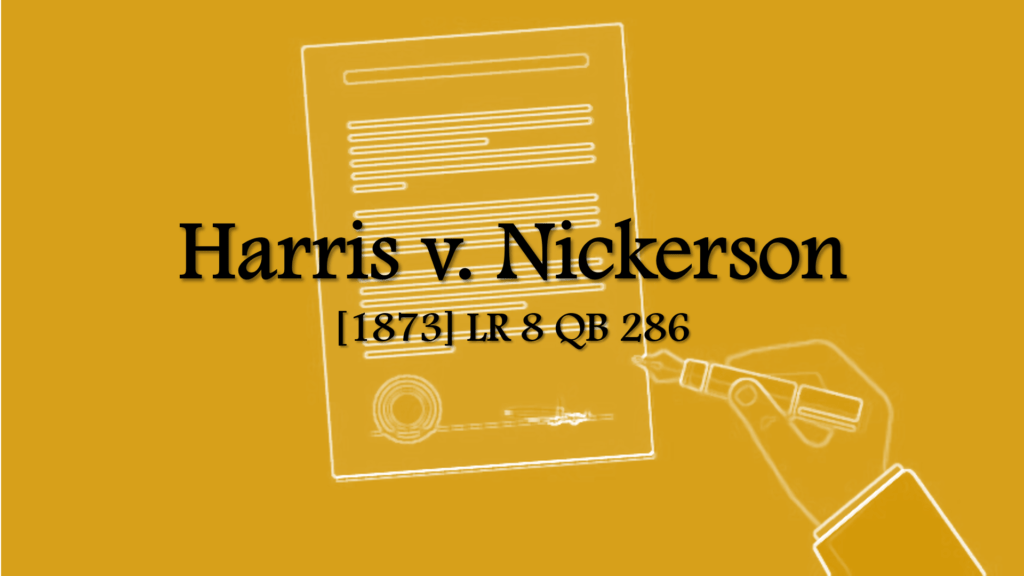
This article is written by Vamakshi Pareek of BA.LL.B. 2nd Year of RNB Global University, Bikaner.

Facts of the Case
- The defendant published an advertisement of an auction for office furniture in the London Papers, from 14th August, 1872 to 16th August, 1872.
- Upon seeing the advertisement, the plaintiff, a commission broker in London, went down to the sale, only to find out that the lots of furniture were withdrawn.
- The Plaintiff, then bought a suit against the defendant, claiming for the loss of his time and expenses.
Issues raised before the Court
- Whether the advertisement was an offer or ana invitation to offer?
- Whether the defendant should be held liable for the withdrawal of the goods of the action sale?
Contention at the part of:
Plaintiff (Harris)
- Plaintiff’s lawyer, Warton, argued that the advertisement by the defendant was an offer to sale. Thus, it should be considered equivalent to an offer.
- And the expenses that he incurred for travelling to the place of the sale was his acceptance, thus forming a valid contract between both the plaintiff and the defendant.
- Furthermore, the cancellation or the withdrawal of the auction would be considered as the breach of the contract, for which he would be entitled for compensation.
Defendant (Nickerson)
- Defendant’s lawyer, Macre Moir, argued that mere mere advertising of a sale does not amount to a contract with anybody.
- The advertisement was just an Invitation to offer. It was just a declaration of offer. Thus, they were not liable to pay the compensation to the plaintiff.
Judgment
The court dismissed the claim of the plaintiff, and unanimously held that the advertisement was not an offer, rather it was a mere declaration to sell. Hence, there was no contract between the plaintiff and the defendant. They stated that, mere advertisement dose not amount to a warranty to put up the published articles for the sale. Justice Quain contended that it would be a very inconvenient rule of law to put that an auctioneer would be liable to everybody who attended the sale. Thus, the defendant would not be held liable to pay the compensation.
Conclusion
Through this case the bench had clearly set a precedent that there would be no liability of a person who publishes any advertisement of a sale.
Reference can be taken from a case of Warlow Vs. Harrison, in which it was held that in case of a sale by auction, only bids are treated as an offer and the 3rd fall of hammer or count is treated as acceptance. Only then a binding contract is formed. Hence, in this case no offer was made by either the auctioneer or the bidder, so no contract was formed.
The reasoning of the bench was clearly appropriate in distinguishing between Invitation to offer and only offer. The advertisement to sell goods is only considered as an invitation to offer and does not amounts to an offer.




0 Comments